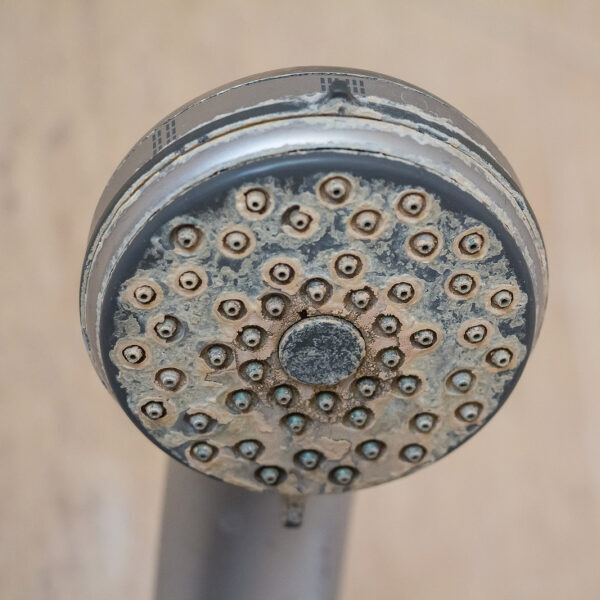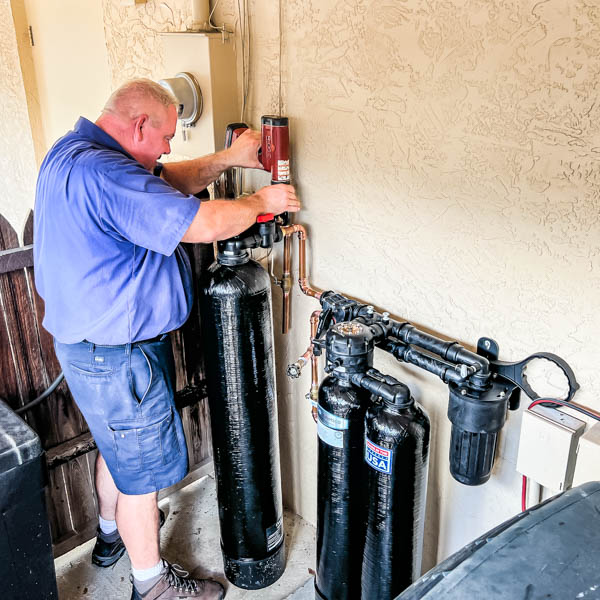Should You Be Using a Water Softener?
Hard water is a problem for around 85% of homes in the U.S. Not only does it taste horrible, it leaves ugly spots on dishes and cookware and can wreak havoc with plumbing. If this sounds like your experience, a water softener will solve the hard water problem. Atlantic Coast Water Clinic of South Florida would like to share a little about what water softening systems do and the benefits they bring.
 What is hard water?
What is hard water?
“Hard water” is the term that describes water – usually piped in from a municipal source – that contains excess levels of calcium and magnesium ions. While city and county water suppliers are mandated to test their water for contaminants and impurities, they aren’t responsible for removing calcium and magnesium.
How to know if your water is “hard”
An immediate clue is a strong, unpleasant taste while drinking the water and an unpleasant aftertaste. But keep in mind that if you’ve been drinking hard water for a long time, you may have gotten used to it and won’t notice the hardness just by the taste or smell.
Here are some other clues that you’re using hard water:
• Spots all over your glasses, plates, silverware, pots, pans and other kitchen items.
• White, crusty buildups around faucets; haze on shower walls.
• Dry, itchy skin; lifeless hair.
• Low water pressure due to buildups in the pipes.
• Dingy-looking, “stiff” clothes coming out of the dryer.
Hard water can cost you money
While a bad taste, itchy skin, spots on cookware and unsightly laundry are no fun, there’s also a potential monetary issue with hard water.
Excess calcium and magnesium deposits in plumbing pipes can cause major damage over time and lead to serious clogging and flooding. Plumbing repair and installation bills can be exorbitant.
Clothes washers, dishwashers and other appliances that use incoming water can be negatively affected by hard water scaling. This can result in poor performance and shorter lifespans. New appliances aren’t cheap.
Compared to soft water, hard water can require twice the amount of soaps and detergents for bathing and general cleaning. This isn’t a huge expense, but why incur it if you don’t have to?
Because time is money, hard water can cost you by keeping you busy with extra cleaning, scraping and polishing around your home. You can probably find better, more profitable ways to spend your time.
Have your water tested
A proper water test will tell you the level of hardness in your incoming water. It will also reveal the level of contaminants in the water you’re drinking, cooking with and bathing in. Common contaminants in household water include:
• Mercury
• Lead
• Arsenic
• Pharmaceuticals
• Viruses and bacteria
• Pesticides
 If high levels of potentially dangerous contaminants are found, there are some excellent water purification solutions you can look into.
If high levels of potentially dangerous contaminants are found, there are some excellent water purification solutions you can look into.
Installing a water softening system
If you’re tired of hard water and all the problems it causes, maybe it’s time to think about a quality water softening system. Atlantic Coast Water Clinic specializes in the sale and installation of top-line water softeners as well as whole-house water treatment and purification systems. Your water is too important to take a chance on. Call us, and make sure it’s the best-tasting, safest and healthiest water available.
Reach a water expert today at (772) 283-4767, or reach out with our simple contact form.


 772-283-4767
772-283-4767